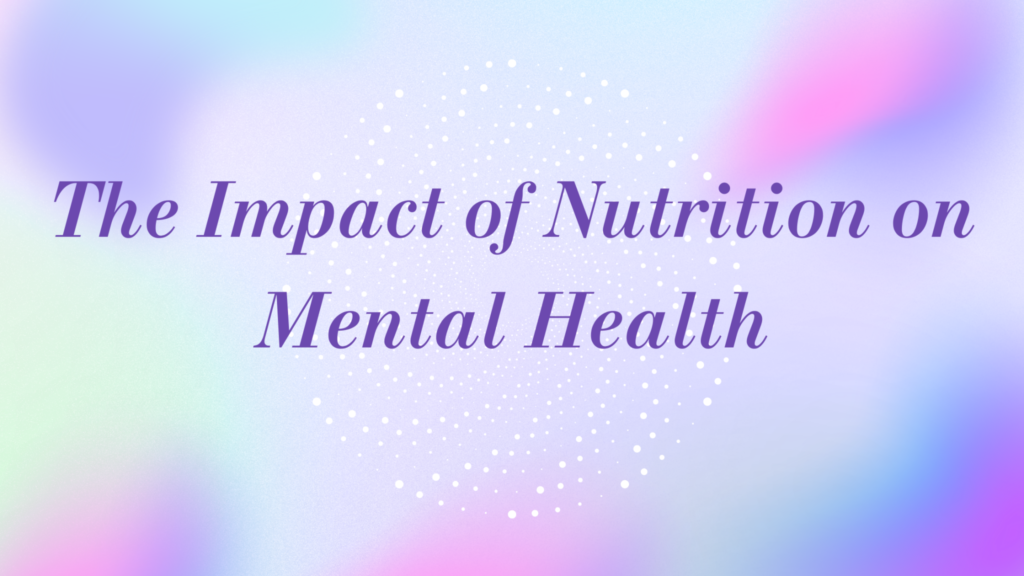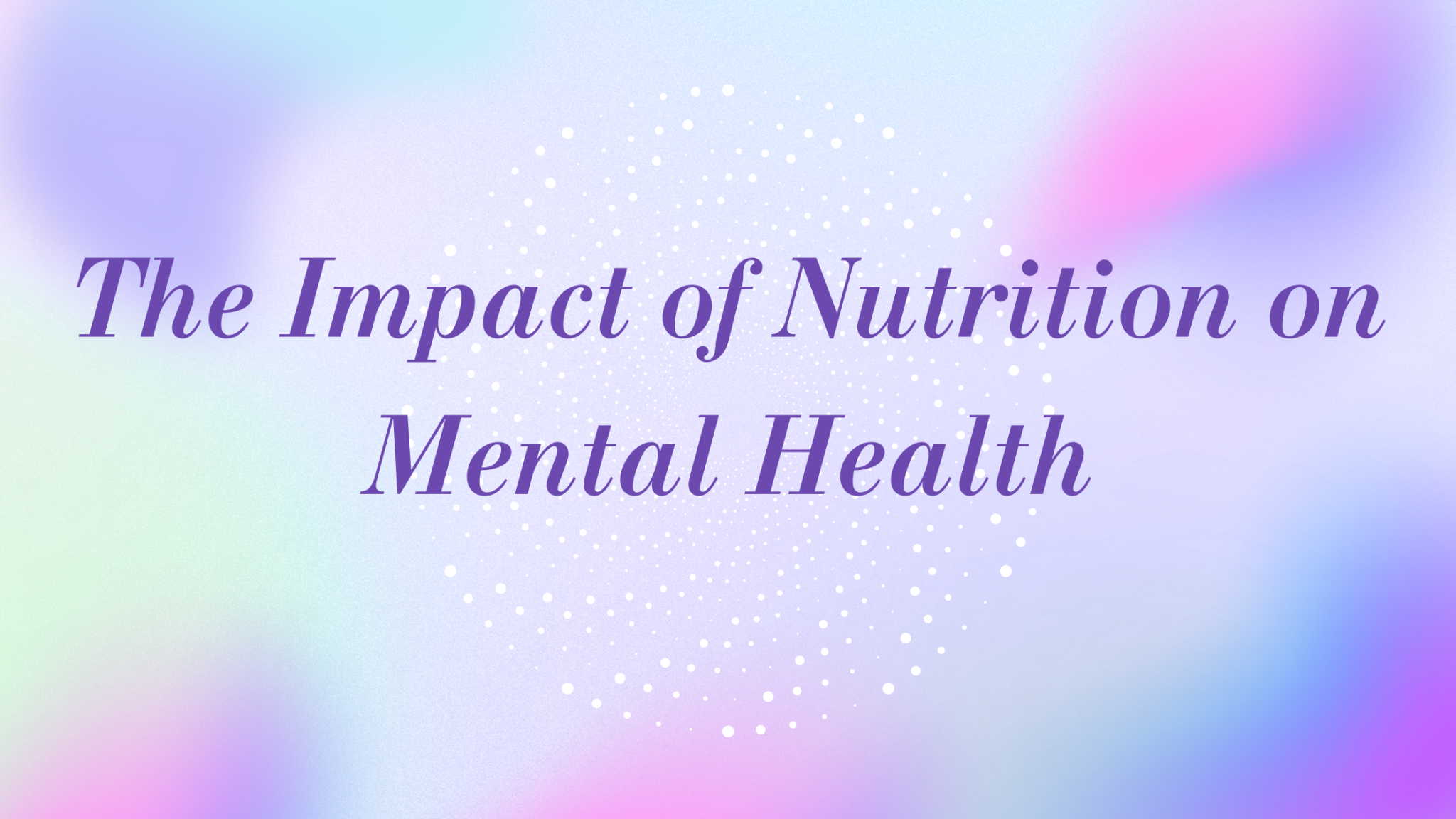
You are what you eat! We all know this saying, right? But have you ever thought about what it really means your brain? Often, we think about food in terms of our weight or how tired we feel. But guess what? What you eat can seriously affect your mental health too! So, let’s take a tasty journey into nutrition and see how it can help us feel better mentally.
The Gut-Brain Connection: Your Tummy Talks to Your Brain
First up, let’s chat about the gut-brain connection. Picture your stomach and brain as best buddies constantly sending messages to each other. This connection is called the gut-brain axis. It means that stuff happening in your stomach can totally mess with your brain and the other way around.
Your gut is home to lots of tiny bugs called microbiota. They are really important because they help make happiness chemicals like serotonin and dopamine, which control your mood. When your tummy feels good, it gives good vibes to your brain too! Keeping your gut healthy is super important for feeling mentally good.
Key Nutrients for a Happy Brain

Now, let’s get to the yummy stuff the foods that can cheer up your brain. Here are some key players when it comes to brain food:
Omega 3 Fatty Acids: You find these in fish like salmon and sardines as well as walnuts and flaxseeds. Think of them as the superheroes of brain health! They build and fix brain cells while keeping inflammation away. Studies show that folks who munch on omega 3s often feel less sad or anxious.
B Vitamins: These vitamins, especially B6, B12, and folate are like helpful handymen for your brain! They help produce and repair brain cells. You can get them from leafy greens, beans, eggs, and fortified cereals. If you have low levels of these vitamins, it could make you feel down or lead to bigger mood issues.
Vitamin D: Also known as the sunshine vitamin because our bodies create it when we enjoy some sun! It helps with mood regulation and fighting off depression. If sunlight is hard to come by, find vitamin D in fatty fish, cheese, and egg yolks.
Antioxidants: Think of antioxidants as bodyguards for your brain guarding against damage! Vitamins C and E found in fruits, veggies, nuts and seeds are fantastic at this job. Eating lots of foods rich in antioxidants helps keep your brain healthy.
Magnesium: This mineral plays a big role in helping your brain function well. It’s involved in hundreds of reactions inside us that affect mood too! Foods like nuts, seeds, whole grains, and leafy greens offer magnesium. Low magnesium might leave you feeling anxious or fuzzy-headed.
Eating Patterns for Better Mental Health

But wait it’s not just about eating individual foods; the general pattern of what you eat is super important too! Here are two eating styles that really matter:
Mediterranean Diet: Imagine this diet as a vacation for your brain! Full of fruits, veggies, whole grains, nuts seeds olive oil. Research shows folks who stick to this diet feel less depressed or anxious. It’s like treating your brain to a daily spa day!
Western Diet: Sadly, this is the way many eat today packed with processed foods and sugary snacks. Eating like this can cause inflammation among other problems that hurt your brain function. People munching on junk food often feel cranky or anxious. So maybe think twice before grabbing that extra donut
Lifestyle Matters Too
Eating well is super important but other things play a big part in mental health too:
Exercise: Moving around helps elevate your mood! Exercise boosts endorphins those feel good chemicals. Even taking a walk can help lift you up!
Sleep: Don’t forget sleep! It’s crucial for feeling good; lack of sleep makes people grumpy and might even lead to serious mood issues. Aim for 7 to 9 hours of restful sleep nightly!
Stress Management: Stress is like an annoying guest who won’t leave! Finding ways to deal with stress like mindfulness or yoga can really improve how you feel.
Simple Tips for a Brain Healthy Diet
So how do you make your meals happier for your brain? Here are some easy tips:
Eat a Rainbow: Toss lots of colorful fruits and veggies onto your plate.
Snack Smart: Go for nuts, seeds or yogurt instead of chips or candy.
Stay Hydrated: Drink plenty of water because being dehydrated can make you feel grouchy.
Limit Processed Foods: Try cutting back on junk food and sugary treats.
Get Your Omegas: Include fatty fish, flaxseeds and walnuts into meals.
Consider Supplements: Talk with your doc if you’re worried about missing out on nutrients.
Conclusion
Eating well isn’t just about looking good; it’s also about feeling great! By learning how nutrition ties into mental health means we can make better food choices that help us feel more energetic and happier! So next time you think about what to eat remember your brain needs good fuel too!
By filling up on nutritious foods while keeping an eye on lifestyle habits you can support your mind and body so they feel their best. Who knows? That extra helping of veggies might just help you ace that test or rock that work presentation! Here’s wishing for a healthier and happier version of YOU from the inside out
How does nutrients affect your mental fitness?
Conversely, an insufficient weight loss plan can result in fatigue, impaired decision-making, and might sluggish down response time. In truth, a bad food regimen can absolutely aggravate, and might even cause, pressure and depression.
What vitamins are right for intellectual fitness?
Studies suggests that growing essential fatty acids have an effect on the prevention and remedy of tension and melancholy. Moreover, omega-three can optimize mood balance & cognitive function. (fish, chia seeds, walnuts, seeds, seaweed, olive oil, and so forth.)
How can good nutrition prevent depression?
Ingesting omega-3 fatty acids might also reduce the threat of temper disorders and mind illnesses via enhancing mind function and maintaining the myelin sheath that protects nerve cells. Precise resources of omega-3 fatty acids include : bloodless-water fish, consisting of salmon, sardines, tuna, and mackerel. Flaxseed, flaxseed oil, and chia seeds.
How does food affect your brain?
Like an high-priced automobile, your mind features best while it receives simplest top class fuel. Consuming amazing foods that include lots of nutrients, minerals, and antioxidants nourishes the mind and protects it from oxidative pressure the “waste” (free radicals) produced while the frame uses oxygen, which can damage cells.
What is the connection between food and intellectual fitness?
Several nutritional deficiencies, along with vitamin b12, b9 (folate), and zinc, can cause signs of despair and dementia inclusive of low temper, fatigue, cognitive decline, and irritability.
